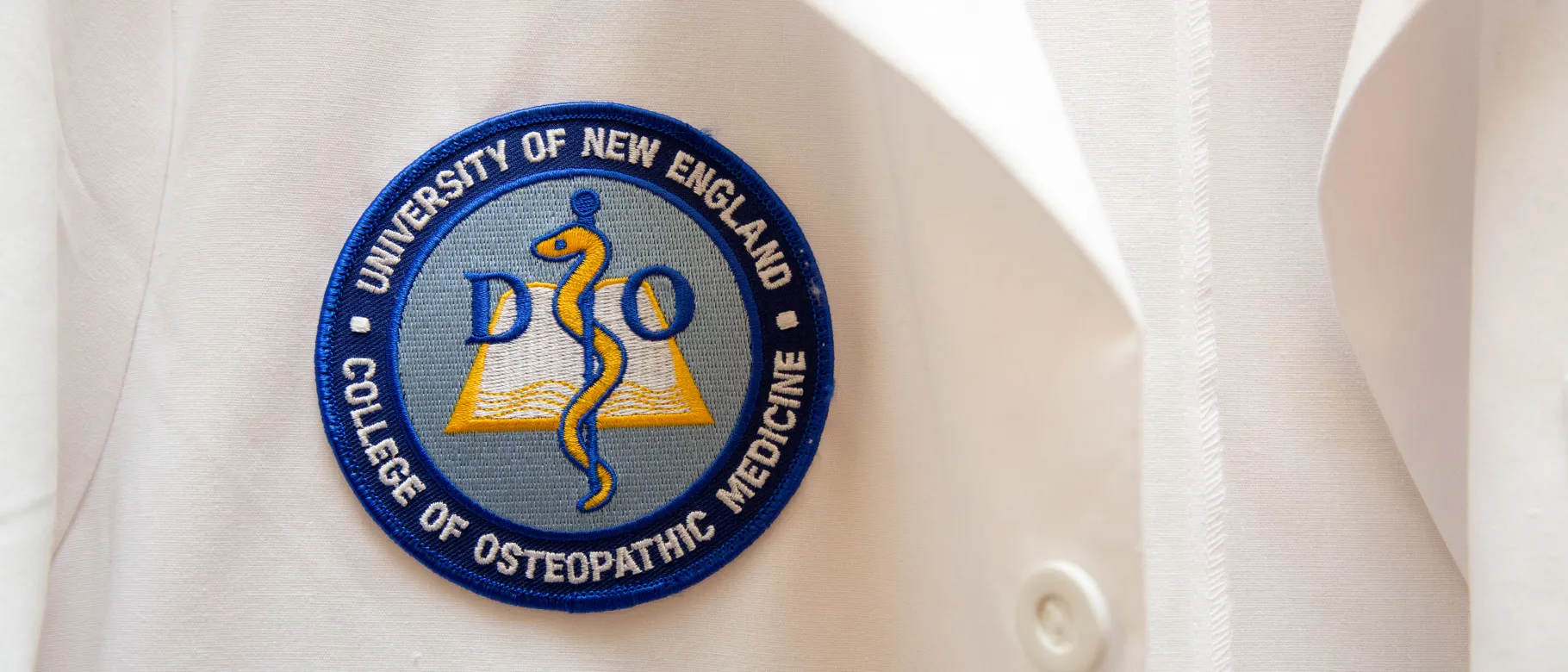Cultivating an atmosphere of respect: UNE body donor program featured in podcast

In medical students’ first year of school, they learn a difficult lesson about the delicate balance between viewing patients as people and also doing their jobs to treat them. Anatomy class is where first-year medical students learn about human anatomy by dissecting human cadavers, the bodies of people who intentionally donated their remains to medical education. A podcast from digital magazine Undark sheds light on the experiences of students in the anatomy lab and how it prepares them to be empathetic and thorough physicians.
For the story, journalist Kaitlyn Schwalje interviewed UNE College of Osteopathic Medicine student Jenna Wozer, (COM ’21). She described the moment she first saw her donor in the anatomy lab, and how at first, it was difficult to look at his face. “Humanizing somebody before you go to learn their anatomy is a difficult thing,” she says.
As Schwalje explains, human anatomical education has moved in recent years to a humanistic model where a cadaver is a viewed as a medical student’s first patient. She describes how medical schools have worked to cultivate atmosphere of respect. To illustrate this, Schwalje attended and recorded UNE COM’s annual body donor memorial service, which honors those who have donated their bodies to medical education as well as their families. For the medical students like Wozer who attend the ceremony, it’s an opportunity to reflect on the people who made the conscious choice to use their bodies to help student doctors learn.
“I remember the first time I saw my donor I was struck by the fact that the person had lived a whole life, and now they were here before me.”